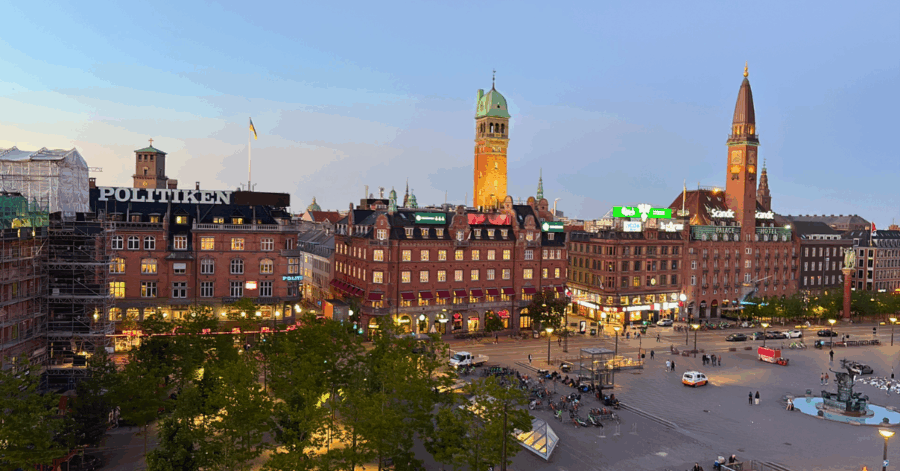You know when there’s a popular TV show, and everyone’s talking about it, so you know the characters, basic plotline, and random spoilers, but then you actually watch the show, and everything starts to mean something to you? That’s what studying abroad feels like. I knew where I was going and what I would be doing, but I had no idea what it would feel like to be here.
I mean, I’ve been looking forward to studying abroad since before the pandemic (yes, THAT long), so by the time I was ready to come to Sweden, I was on the third or fourth page of Google results for “Studying Abroad in Stockholm,” and my YouTube suggested section was entirely “What to Pack for a Semester Abroad” and “10 Things That Surprised Me About Moving to Sweden.” Even my sister was getting TikToks about exchange semesters.

I did all the readings and all the research. I was totally ready for the generally reserved culture here in Stockholm, the all-black that might as well be a dress code, even the generational attitudes toward the king, which I probably learned in the very depths of a random Reddit thread. But even so, I don’t think there are enough articles on the whole internet to capture what it feels like to move seven time zones away to a country I’d only seen through photos and videos on the internet.
At first, I thought the challenge would be all these functional things like grocery shopping and navigating the metro—both of which took some getting used to. (Nobody tells you how confusing your first few grocery trips are going to be when everything’s written in Swedish and nothing comes in the packaging you would expect.) When I was thinking about writing this blog, I thought I would brag about how accustomed I’ve gotten to the different aisles in my grocery store and how I could find the right train with my eyes closed at this point. But now that I know my way around, I’m beginning to think it’s the only thing I know.
Last week an Italian friend taught me a new phrase, and I haven’t been able to stop thinking about it. Some friends and I took a weekend trip to the Arctic Circle and had been hiking for a while. Finally, we came out to this clearing with mountains right next to rapids moving so fast they were the only thing that hadn’t frozen over, with miles of completely untouched snow in every direction. So obviously, we had an enormous snowball fight until everyone had either been pushed into the snow or chosen to take a seat from exhaustion.
As we collapsed into the ground, the so-many feet of snow molded to our bodies, creating snow-chairs, and we were lounging as if they’d been velvet couches. Everyone was laughing, having different conversations until they all died out simultaneously, leaving complete silence.

That’s when my friend said, “dolce fer neinte,” to which I responded with a confused look. He tried repeating it while our other friend translated, “the sweetness of doing nothing.” That’s what he said we were doing: enjoying how sweet it is to do nothing at all. And ever since I learned this phrase, I find myself noticing whatever guilt I’m used to feeling about doing nothing is replaced by the thought of how sweet it is to be able to do nothing.
And, of course, living in Sweden, the Swedish words and phrases I’ve learned are endless. “Fika,” maybe everyone’s first Swedish word, is a very, very beloved tradition of getting a coffee and a pastry with someone and just taking a break, talking, and enjoying each other’s company. But it’s striking how open everyone is to take a break from whatever they were doing to share time and conversation with a friend, stranger, colleague or anything in between.
Then last week, as my Swedish friend got ready to leave the library at 5 p.m. sharp like most students, I commented on how well everyone manages their school life—knowing when to draw the line and prioritize other things. She went on to tell me about another Swedish word, “lagom,” meaning something like, “not too much, not too little.” She explained how deeply engrained it is in Swedish culture and how proactive people will be to maintain this “just enough.”

As soon as she said it, I saw it everywhere, from the neutral-toned wardrobes that make it so easy to own only a few pieces of clothing to the 15-minute break observed in the middle of every lecture. And beyond these things that have perfect words to describe them are all these habits and practices that continue to surprise me.
Moving abroad comes with very functional challenges and changes, but what has been the biggest change is learning to adapt my entire thinking to match my life. It wasn’t too hard to start addressing my professors by their first names, but I’m still learning to stop thinking in hierarchies.
Every other day, something happens that gets stuck in my head, making me question things I’d never known to question. I’m not sure anyone could’ve prepared me for this (you just have to watch the show yourself), but for me, it’s been the best part of my time abroad. As a member of the class of 2023, my college experience has been everywhere, so I think it should hold particular weight when I say I can’t imagine learning more in a single semester.
This post was contributed by Suneri Patel, a Global Ambassador for Spring 2022. Suneri is a third-year chemical engineering major studying abroad in Stockholm, Sweden.





